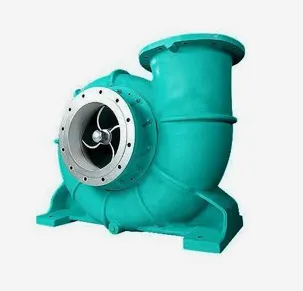English
- Afrikaans
- Albanian
- Amharic
- Arabic
- Armenian
- Azerbaijani
- Basque
- Belarusian
- Bengali
- Bosnian
- Bulgarian
- Catalan
- Cebuano
- Corsican
- Croatian
- Czech
- Danish
- Dutch
- English
- Esperanto
- Estonian
- Finnish
- French
- Frisian
- Galician
- Georgian
- German
- Greek
- Gujarati
- Haitian Creole
- hausa
- hawaiian
- Hebrew
- Hindi
- Miao
- Hungarian
- Icelandic
- igbo
- Indonesian
- irish
- Italian
- Japanese
- Javanese
- Kannada
- kazakh
- Khmer
- Rwandese
- Korean
- Kurdish
- Kyrgyz
- Lao
- Latin
- Latvian
- Lithuanian
- Luxembourgish
- Macedonian
- Malgashi
- Malay
- Malayalam
- Maltese
- Maori
- Marathi
- Mongolian
- Myanmar
- Nepali
- Norwegian
- Norwegian
- Occitan
- Pashto
- Persian
- Polish
- Portuguese
- Punjabi
- Romanian
- Russian
- Samoan
- Scottish Gaelic
- Serbian
- Sesotho
- Shona
- Sindhi
- Sinhala
- Slovak
- Slovenian
- Somali
- Spanish
- Sundanese
- Swahili
- Swedish
- Tagalog
- Tajik
- Tamil
- Tatar
- Telugu
- Thai
- Turkish
- Turkmen
- Ukrainian
- Urdu
- Uighur
- Uzbek
- Vietnamese
- Welsh
- Bantu
- Yiddish
- Yoruba
- Zulu
Telephone: +86 13120555503
Email: frank@cypump.com
Sep . 23, 2024 03:55 Back to list
septic sprinkler pump
Understanding the Septic Sprinkler Pump A Vital Component for Wastewater Management
Managing wastewater effectively is essential for maintaining a healthy environment. Among the various components involved in wastewater treatment, the septic sprinkler pump plays a crucial role in ensuring that effluent is treated and distributed properly. This article explores the function, importance, and maintenance of septic sprinkler pumps.
A septic sprinkler system is designed to manage effluent from a septic tank, allowing the treated wastewater to be dispersed over a larger area through a network of sprinklers. This system is particularly useful for homes that are not connected to municipal sewer lines and need an efficient and environmentally friendly way to handle their wastewater. The septic sprinkler pump works by transporting the effluent from the septic tank to the designated sprinkle field, where it is evenly distributed, allowing for further purification by the soil.
One of the primary advantages of using a septic sprinkler pump is its ability to provide consistent and controlled dispersion of wastewater. By utilizing a pumping mechanism, the system can overcome the gravitational limitations that might otherwise hinder traditional drainage methods. This capability ensures that the effluent is spread out evenly, preventing localized saturation and potential contamination of groundwater sources. When functioning correctly, a septic sprinkler system not only promotes effective wastewater management but also reduces the risk of unpleasant odors and health hazards associated with stagnant wastewater.
septic sprinkler pump

The operational efficiency of a septic sprinkler pump can be influenced by several factors, including its size, the type of effluent being treated, and the layout of the sprinkler system. Therefore, it is essential for homeowners or property managers to consult with professionals before selecting and installing a pump. Proper sizing and placement within the system ensure optimal performance, prolonging the pump's lifespan and reducing the likelihood of operational issues.
Maintenance is another critical aspect of ensuring the longevity and effectiveness of a septic sprinkler pump. Regular inspections and servicing are necessary to prevent common problems such as clogs, mechanical failures, or electrical issues. Homeowners should ensure that the pump is running smoothly and that the filters and other components are clean and functional. Additionally, it is advisable to monitor the surrounding landscape for signs of oversaturation or unexpected vegetation growth, which can indicate a malfunctioning system.
Overall, septic sprinkler pumps are indispensable for efficient septic system management. They play a vital role in transporting and distributing treated effluent, making them essential for properties that rely on septic systems for wastewater disposal. By understanding how these pumps work and adhering to routine maintenance practices, homeowners can ensure that their sewage management systems operate effectively, safeguarding both their property and the environment. Proper knowledge and care can lead to long-term sustainability and functionality, confirming the importance of the septic sprinkler pump in modern wastewater management solutions.
-
Heavy-Duty Mining Sludge Pumps - Wear-Resistant Slurry Handling
NewsAug.02,2025
-
Horizontal Split Case Pump with GPT-4 Turbo | High Efficiency
NewsAug.01,2025
-
ISG Series Pipeline Pump - Chi Yuan Pumps | High Efficiency, Durable Design
NewsAug.01,2025
-
Advanced Flue Gas Desulfurization Pump with GPT-4 Turbo | Durable & Efficient
NewsJul.31,2025
-
ISG Series Vertical Pipeline Pump - Chi Yuan Pumps | Advanced Hydraulic Design&Durable Construction
NewsJul.31,2025
-
ISG Series Vertical Pipeline Pump - Chi Yuan Pumps | Energy Efficient & Low Noise
NewsJul.31,2025










